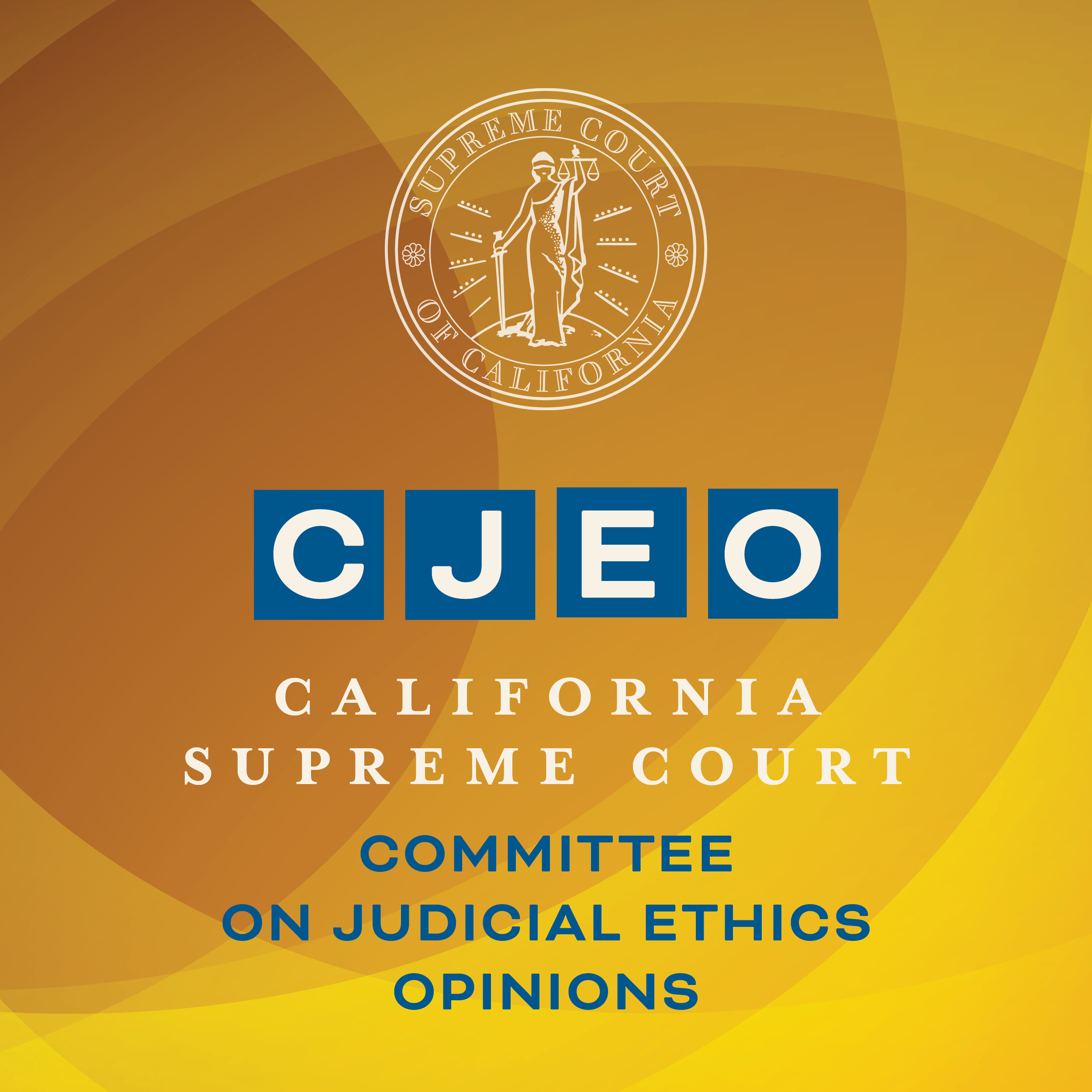Supreme Court Committee Seeks Public Comment on Draft Judicial Ethics Advisory Opinion
UPDATE: Public Comment Period Extended
The deadline to comment on CJEO Draft Formal Opinion 2019-014 is extended through May 15. CJEO experienced a technical issue with its online submission form on the CJEO website. If you submitted a comment using the online form between April 4 and April 10, CJEO did not receive your comment. CJEO values and carefully considers every comment it receives. If you are unsure if your comment was received, please call 1-855-854-5366 or email CJEO to verify your submission.
The California Supreme Court Committee on Judicial Ethics Opinions (CJEO) invites public comment on a draft opinion which advises that a judge generally cannot use the court’s case management system to search for information on a party, attorney, or facts relevant to the case before the judge.
The opinion advises that a judge may search a court management system if:
- The judge limits the search to documents or other information that are part of the case assigned to the judge;
- The search is authorized by law: for example, small claims cases where judges have more flexibility to investigate and consult witnesses; or
- The judge can take judicial notice of the information pursuant to the Evidence Code. The opinion primarily focuses on this judicial notice exception.
CJEO Draft Formal Opinion 2019-014 advises that if a judge performs an impermissible search, the judge must evaluate whether they are now biased in the matter or if there is an appearance of bias that would require disqualification. If not, the judge should still disclose the search, disclose any information the judge viewed, and provide the parties with an opportunity to respond.
The draft opinion also advises that any independent search of a court case management system for information on a party or attorney, or other information that may be relevant to the matter assigned to the judge, could create an appearance of judicial bias, particularly if the search results benefit one party. Due to these concerns, the draft opinion advises that a judge should exercise great caution or avoid conducting such searches.
The draft opinion and invitation to comment are posted on the committee’s website. The deadline for comment is May 15 and may be submitted:
- By email to Judicial.Ethics@jud.ca.gov; or
- By mail to:
Ms. Nancy Black, Committee Counsel
The California Supreme Court
Committee on Judicial Ethics Opinions
350 McAllister Street
San Francisco, California 94102
All comments submitted in response to this invitation to comment are confidential and will not be disclosed unless confidentiality is waived. Those comments submitted with a waiver of confidentiality will be posted for public view on the CJEO website at the close of the comment period. All comments the committee receives will be carefully considered by CJEO members when finalizing and approving the formal opinion. After considering the public’s comments, the committee will decide whether the opinion will be published in its original form, modified, or withdrawn.
About the Committee on Judicial Ethics Opinions
The Committee on Judicial Ethics Opinions is a 12-member advisory committee that includes appellate justices, trial court judges and commissioners. The committee is appointed and authorized by the California Supreme Court, but its work is independent of the court, the Judicial Council, and all other entities. Its opinions are advisory and do not necessarily reflect the views of the California Supreme Court or any other entity. (Cal. Rules of Court, rule 9.80(b); Cal. Com. Jud. Ethics Opns., rule 1(a).)
The committee issues formal opinions, informal opinions, and oral advice on proper judicial conduct pursuant to the California Code of Judicial Ethics and other authorities. (Cal. Rules of Court, rule 9.80(e)(1); Cal. Com. Jud. Ethics Opns., rule 1(a)-(b).)
For more information about CJEO, visit the CJEO website and view the CJEO members’ page, call toll-free at 1 (855) 854-5366, or email Judicial.Ethics@jud.ca.gov.


